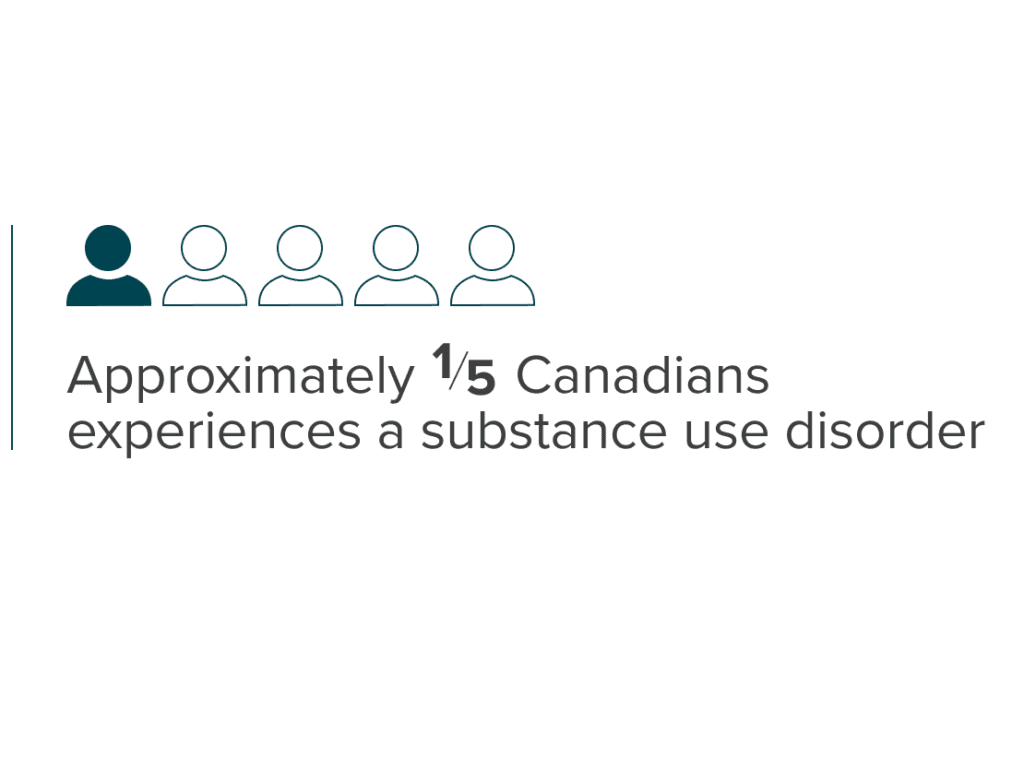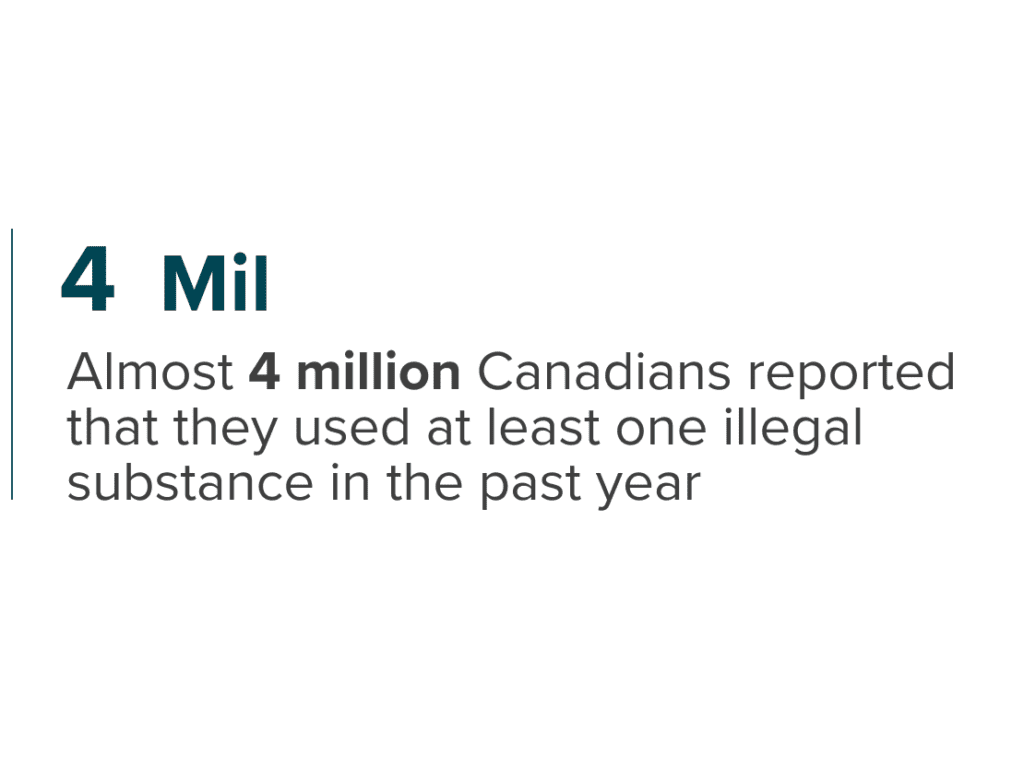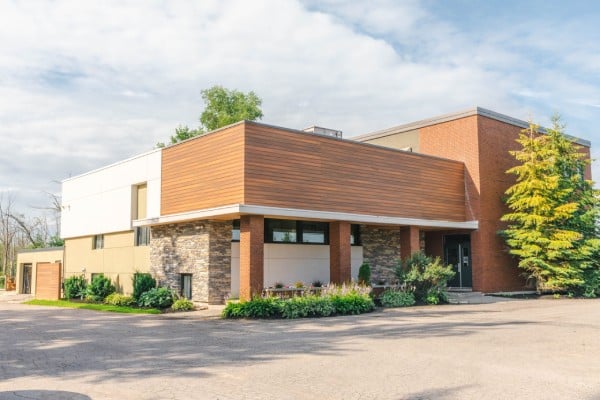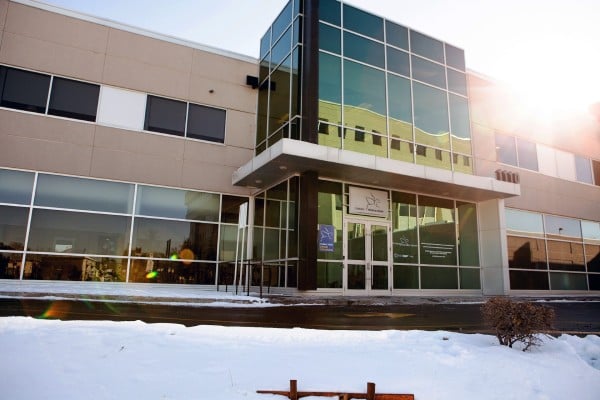Drug & Prescription Medication Addiction Treatment
If substance use has taken over your life, we can help you address the mental health concerns at the root of your addiction to overcome it once and for all.

What Is Drug Addiction?
Drug addiction occurs when someone becomes dependent on illegal or legal substances, such as:
- Cocaine: Cocaine is a highly addictive stimulant drug. Street names include coke, crack, blow, rails, lines, or bumps. Cocaine is highly addictive, and in larger doses it can cause dangerous blood pressure spikes and heart rhythm problems that can lead to heart attack.
- Amphetamines: Amphetamines are stimulants that speed up the central nervous system, often mimicking the body’s natural hormones. Regular use of amphetamines can lead to drug induced psychosis, delusions, paranoia, hallucinations, as well as bizarre and violent behaviour. Included in the category of amphetamines are dexamphetamine medications used to treat ADHD, methamphetamines (crystal, meth, rock, ice) and amphetamines (speed).
- Methamphetamines: Methamphetamine (also known as meth, speed, chalk, ice, crystal, or jib) belongs to the family of drugs known as amphetamines. Methamphetamine increases a user’s heart rate, blood pressure, and body temperature. In higher doses it can cause seizures and lead to overdose.
- Heroin: Heroin is a highly addictive opioid drug made from morphine. Using heroin produces feelings of pleasure or euphoria, but it also suppresses heart rate and breathing because of the way it acts on the central nervous system. Overdosing on heroin is dangerous since it can stop a person’s breathing and lead to coma or even death.

- Cannabis: Cannabis, also known commonly as “marijuana,” “pot,” or “weed,” comes from the Cannabis sativa plant and is used for its psychoactive effects. Cannabis is legal for both recreational and medicinal purposes in Canada. But that doesn’t mean it’s safe for everyone or comes without risks. For some people, it can cause paranoia, anxiety, frightening hallucinations, and other unpleasant symptoms. Research has also shown that using cannabis increases a person’s chances for clinical depression, and it can worsen existing mental health disorders. It can also intensify the dangers of alcohol.
- Fentanyl: Fentanyl is a powerful synthetic opioid pain reliever that is 50 to 100 times more powerful than morphine. Using fentanyl repeatedly can diminish the brain’s ability to release and reuptake neurotransmitters associated with positive feelings. This creates a vicious cycle, where a person must take more and more of the drug just to feel normal.

What Is Prescription Drug Abuse?
Many of us are aware of the dangers of illegal substances, but abusing prescription drugs can be just as dangerous and addictive. What starts out as normal, prescribed drug use for health conditions like depression, anxiety, or chronic pain sometimes escalates into prescription drug dependence. This dependence of prescription drugs can also cause people to turn to street drugs as well.
When it comes to addiction and dependency, certain categories of prescription drugs are of greater concern. They include:
- Opioids (Narcotics): Prescription opioids treat moderate to severe pain by attaching to opioid receptors in the brain and changing the way a person perceives pain. These drugs can be incredibly addictive because they cause a release of the feel-good chemical dopamine in the brain. This can make the user feel relaxed and calm, even when they are in pain.
- Some examples include: Codeine, Fentanyl, Morphine, Oxycodone, Oxymorphone, Oxycontin, Opana, Percocet, Vicodin, and Roxanol

- CNS Depressants: Prescription central nervous system (CNS) depressants helps slow down brain activity in people with anxiety, panic disorder, and similar conditions. These drugs can produce feelings of euphoria because they boost dopamine levels, which can lead some to misuse them. The real danger comes when CNS depressants are mixed with cocaine or alcohol, which can slow breathing rates to fatal levels. Like alcohol, detoxing from some of these medications is potentially lethal and should be doctor-supervised by a doctor.
- Some examples include: Valium, Ambien, Mephobarbital, Klonopin, Lunesta, Phenobarbital, Xanax, Sonata, and Pentobarbital sodium
- Stimulants: Prescription stimulant drugs help people with mental health conditions that impede focus and concentration, like ADHD, calm down and improve attention. But using stimulants recreationally or to increase concentration can quickly lead to addiction, as the energy boost people get from taking prescription stimulants can be hard to resist.
- Some examples include: Ritalin, Dexedrine, Adderall, Vyvanse, Concerta, Focalin, ProCentra, and Zenzedi

Our Treatment Plan for Drug Addiction
EHN Canada facilities have been guiding recoveries for more than 100 years combined. Because addiction affects everyone differently, we treat every patient as a unique person with their own story and struggles.
Behind every type of treatment for drug addiction at EHN is our commitment to your success. Our evidence-based approach includes detox, medication management, one-on-one and group therapy, psychoeducation, a family support program, mindfulness, and exercise to help you care for your physical, mental, and social wellbeing.
You’ll work with medical experts who know the best ways to help individuals who struggle with drug addiction. Our multidisciplinary team of doctors, nurses, therapists, and psychiatrists are here to help you build the foundation for lifelong recovery.

How To Succeed in Drug Addiction Treatment
At EHN Canada, we give you the support you need to maintain your progress and prevent relapse.
Every aspect of treatment – from the structure and tight-knit community, to the evidence-based approach and limited distractions, and one-one-one and group counselling – is carefully selected to support your success.
Our medical experts carefully monitor each patient and provide recommendations to promote your recovery. For example, if needed, you’ll begin your stay at EHN Canada with a medically-supervised detox.
Eligible patients gain access to our comprehensive aftercare program, which includes group therapy sessions in person or online, for up to a year after you complete treatment. During aftercare, patients will also have the opportunity to access drug and alcohol monitoring for continued accountability.
If you’re not ready to return home, you can practice the skills you’ve learned at Edgewood’s Extended Care program. We’re by your side through every step of your recovery.
Lastly, you’ll have access to an engaged, supportive alumni network to help you stay connected and motivated in recovery.
Related Programs
We offer inpatient, outpatient, and online programs to help you kick your recovery into high gear.
Featured Locations
Whether you want to seek treatment for drug addiction close to home or farther afield, you have plenty of options when you come to EHN Canada. We have locations all over the country.

EHN Bellwood Toronto
Toronto’s Leading Addiction and Mental Health Services Evidence-based treatment for addiction and mental health disorders in the heart of the city.


EHN Edgewood Nanaimo
Private Addiction Treatment on Vancouver Island Evidence-based treatment for addiction recovery and mental health treatment




EHN Guardians Gateway
Trauma and Addiction Treatment Created for Military, Veterans, and First Responders. At EHN Guardians Gateway in Peterborough, Ontario (approximately 1.5 hours outside of Toronto), we’re proud to offer our clients evidence-based treatment for trauma and addiction. And it is all designed with the unique needs of active service members, veterans, first responders, and healthcare providers […]




EHN Nouveau Départ Montréal
For over 30 years, Clinique Nouveau Départ – EHN Canada has offered specialized inpatient and outpatient services to anyone requiring addiction or mental health treatment.




